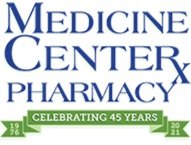Understanding and Managing Diabetes
Special Guest: Nicole Selinsky, Diabetes Educator and Licensed Dietician, at Mercy Medical Center
Diabetes is a challenging disease to manage successfully. From medication to monitoring and from exercise to diet there is a lot to coordinate, understand and manage. Although the care regimen is complex, patients with good diabetes self-care behaviors can attain excellent control. Patients do best when they understand what they need to do, when they feel empowered to affect a change in their life and when they believe the benefits exceed the costs. Today Nicole will share her knowledge and tips to help you or your loved ones understand how to manage diabetes.
Understanding your A1C
Hemoglobin A1C is a test that measures your average blood sugar levels were over the past three months. The A1C test can also be used for diagnosis by your physician and it can also be used as a benchmark to evaluate blood sugar control over a period of three months.
Your A1C test result is given in percentages. The higher the percentage, the higher your blood sugar levels have been:
A normal A1C level is below 5.7 percent
Prediabetes is between 5.7 to 6.4 percent. Having prediabetes is a risk factor for getting type 2 diabetes. People with prediabetes may need retests every year.
Type 2 diabetes is above 6.5 percent
If you have diabetes, you should have the A1C test at least twice a year. The A1C goal for many people with diabetes is below 7. It may be different for you. Ask what your goal should be. If your A1C result is too high, you may need to change your diabetes care plan.
Source: NIH: National Institute of Diabetes and Digestive and Kidney Diseases
Monitoring your blood sugar on a daily basis combined with exercise and a healthy diet plan go a long way to controlling your diabetes. Diabetes Self Management Training by a Certified Diabetes Educator (CDE) and a Registered Dietician (RD) can provide you with valuable information to take control of managing your diabetes.
